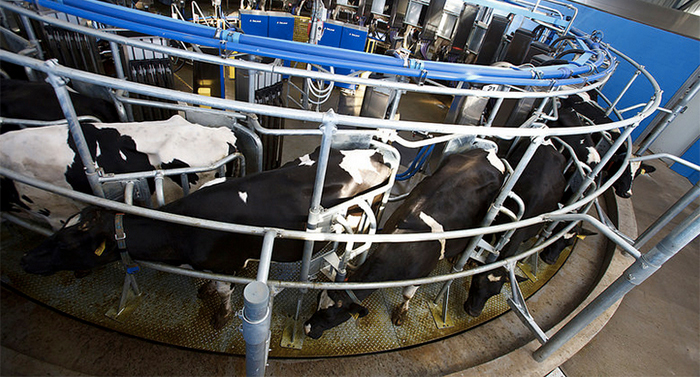
New markets opening up in China and Brazil have the potential to create a swift recovery for the dairy industry in the UK, as Farming Minister George Eustice told the House of Commons Welsh Affairs Committee in London.
"We are seeing growth of 2 to 2.5% year-on-year in the sector and we are opening new markets in China and Brazil for cheese," he said.
"We have seen a big increase in the production of milk globally; up 18% in New Zealand and up 8-10% across Europe."
Indeed, global dairy prices have increased again for the sixth consecutive time since December last year.
First Milk Chairman Sir Jim Paice MP said that while there was 'continued market volatility', the co-operative was 'cautiously optimistic' that the trend for the future of dairy prices is a positive one.
Muller UK & Ireland Group confirmed that its milk price for April 2015 will remain unchanged, after recognising a positive shift in the dairy market.
Managing Director of Muller Wiseman Dairies Carl Ravenhall said: “We are encouraged by recent signs of improvement in global commodity markets and very much hope that this establishes a trend. On the supply side, production of farm-gate milk will peak over the next period and we hope that this will be at a level which supports, rather than undermines stability and progress.”
Eustice said: “And this big increase has seen sharp falls in milk prices. However, a drought in New Zealand has seen production fall there.
“We are not out of the woods yet but the signs on the international auctions are more positive, although this will take a while to go through the system.
“We expect to see a recovery in UK farmgate prices from the summer on, or from the autumn at least.”
Defra Secretary of State Liz Truss says the government is doing all it can for dairy farmers to retain capacity in the “vital” sector.
Some farmers have seen 40% knocked off their milk cheque with many now selling milk for less than the cost of production.
Ms Truss said that her department is working with HMRC on a Time to Pay scheme to allow dairy farmers more time to pay their tax bills, mitigating cashflow problems.
“We’re also exploring the idea of extending the tax-averaging period for farmers from two to five years,” she added. “But working on the Time to Pay rules is our priority.”
Banks are being told to provide help to the crisis-hit sector and exploratory talks on a dairy futures market – designed to make milk prices more predictable – are taking place.
“As everyone knows, price volatility is not a one-off storm. It’s going to be a long-term feature of food and farming and that is why building resilience is vital.”
